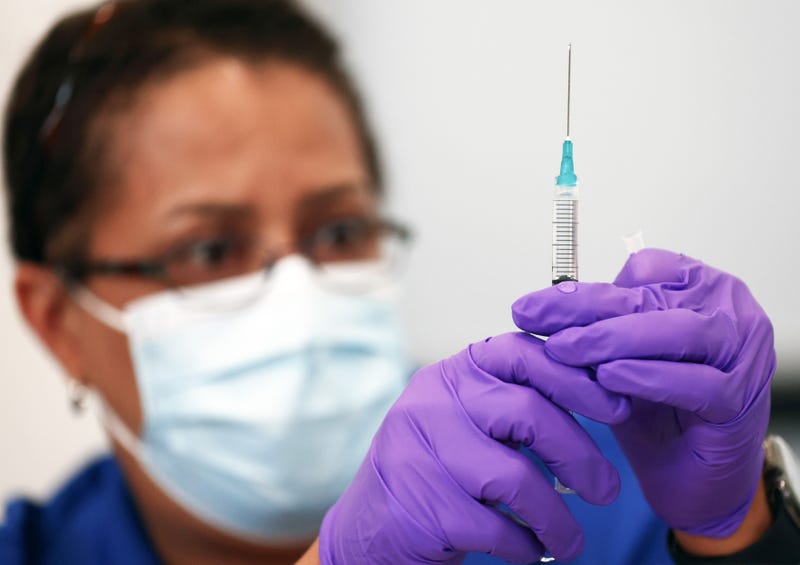
Call it a "supplemental dose" of the COVID-19 vaccine, not a "booster shot."
It's also not for everyone just yet.
Dr. Kim Rhoads, associate professor of epidemiology and biostatistics at the University of California, San Francisco, said on KCBS Radio's "Ask An Expert" on Friday morning those distinctions are important after the U.S. Food and Drug Administration approved a third dose of the Pfizer and Moderna COVID-19 vaccines for people with compromised immune systems.
"This is not for everybody, and I think that's important to emphasize because I know that people will be rushing out to get a third dose," Rhoads explained to KCBS Radio’s Holly Quan and Dan Mitchinson.
Listen to your favorite News/Talk station now on Audacy
“And what I don’t want to see is folks cutting in line in front of those who actually need a supplemental dose just in order to feel safer themselves.”
Rhoads pointed to organ transplant recipients as perhaps "the best example" of people who have weakened immune systems. They actively take medication to suppress their immune systems so the transplanted organ can take.
A "booster shot," meanwhile, refers to another dose that becomes necessary when the immunity of a vaccination wears off. Rhoads said researchers are still waiting on data of participants in initial COVID-19 vaccine trials to see when a booster is warranted, but that hasn't happened yet.
“For people who are immune-compromised, it's not that the immunity that they've generated has worn off,” Rhoads explained.
“It is that they have not generated an adequate level of neutralizing antibodies for the immune response that we would expect to see in order to get the full effectiveness of the vaccine.”
Although the San Francisco Department of Public Health has approved a supplemental dose of either of the mRNA vaccines for residents who received the single-dose Johnson & Johnson vaccine at select locations, including San Francisco General Hospital, the jury is still out on if one is necessary.
Data from a recent clinical trial in South Africa, which is yet to be peer-reviewed or published in a journal, suggested that people might not need a supplemental dose.
Still, the rush from Johnson & Johnson recipients to procure an additional dose could present even more hurdles for a roll-out that Rhoads anticipates might be filled with them. She said she fears mass vaccination sites would present the same problems as the early stages of vaccine distribution, enabling "people with cars and computers, and access and privilege" to line up ahead of people who are qualified to receive a supplemental dose.
The state's immunization registry also doesn't have a slot for a third dose of the COVID-19 vaccine, and officials will need to draft a new set of questions to screen for eligibility. Rhoads said she expected that combination to lead to some hiccups.
The Bay Area has some of California’s highest vaccination rates, but there are a number of people across the region who haven’t received a single dose. Thus, Rhoads argued, equity needs to be front of mind for officials – and residents – when supplemental doses are first offered.
"Because so many of our Bay Area residents are still unvaccinated with their first series of two, those folks trying to get a third dose who (aren't immune-compromised) should not be getting in line in front of others who are either unvaccinated, or who truly are eligible for this supplemental dose," she said.
LISTEN on the Audacy App
Sign Up and Follow Audacy
Facebook | Twitter | Instagram


